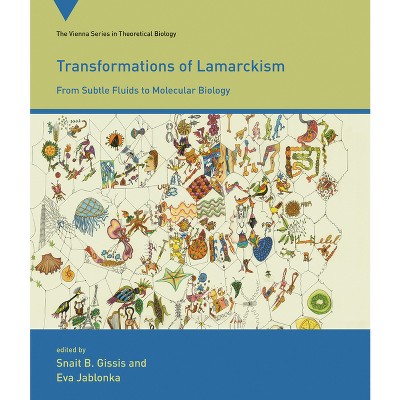Sponsored

Islamic Science and the Making of the European Renaissance - (Transformations: Studies in the History of Science and Techn) by George Saliba
In Stock
Sponsored
About this item
Highlights
- The rise and fall of the Islamic scientific tradition, and the relationship of Islamic science to European science during the Renaissance.The Islamic scientific tradition has been described many times in accounts of Islamic civilization and general histories of science, with most authors tracing its beginnings to the appropriation of ideas from other ancient civilizations--the Greeks in particular.
- About the Author: George Saliba is Professor of Arabic and Islamic Studies in the Department of Middle East and Asian Studies at Columbia University.
- 328 Pages
- Science, History
- Series Name: Transformations: Studies in the History of Science and Techn
Description
About the Book
The rise and fall of the Islamic scientific tradition, and the relationship of Islamic science to European science during the Renaissance.Book Synopsis
The rise and fall of the Islamic scientific tradition, and the relationship of Islamic science to European science during the Renaissance.The Islamic scientific tradition has been described many times in accounts of Islamic civilization and general histories of science, with most authors tracing its beginnings to the appropriation of ideas from other ancient civilizations--the Greeks in particular. In this thought-provoking and original book, George Saliba argues that, contrary to the generally accepted view, the foundations of Islamic scientific thought were laid well before Greek sources were formally translated into Arabic in the ninth century. Drawing on an account by the tenth-century intellectual historian Ibn al-Naidm that is ignored by most modern scholars, Saliba suggests that early translations from mainly Persian and Greek sources outlining elementary scientific ideas for the use of government departments were the impetus for the development of the Islamic scientific tradition. He argues further that there was an organic relationship between the Islamic scientific thought that developed in the later centuries and the science that came into being in Europe during the Renaissance.
Saliba outlines the conventional accounts of Islamic science, then discusses their shortcomings and proposes an alternate narrative. Using astronomy as a template for tracing the progress of science in Islamic civilization, Saliba demonstrates the originality of Islamic scientific thought. He details the innovations (including new mathematical tools) made by the Islamic astronomers from the thirteenth to sixteenth centuries, and offers evidence that Copernicus could have known of and drawn on their work. Rather than viewing the rise and fall of Islamic science from the often-narrated perspectives of politics and religion, Saliba focuses on the scientific production itself and the complex social, economic, and intellectual conditions that made it possible.
Review Quotes
"Saliba's book is essential reading for those who wish to understand the remarkable phenomenon of the 'rise' and 'fall' of the Islamic scientific tradition. His analysis takes place against the backdrop of the broader question of what produces scientific activity in a society, what sustains it and enables it to flourish. Saliba's singular achievement derives as much from the stimulating questions he raises as from his provocative answers. His iconoclastic views will fuel scholarly debates for decades to come." --Gul A. Russell, Department of Humanities in Medicine, Texas A&M University
"Saliba's book is essential reading for those who wish to understand the remarkable phenomenon of the 'rise' and 'fall' of the Islamic scientific tradition. His analysis takes place against the backdrop of the broader question of what produces scientific activity in a society, what sustains it and enables it to flourish. Saliba's singular achievement derives as much from the stimulating questions he raises as from his provocative answers. His iconoclastic views will fuel scholarly debates for decades to come."--Gul A. Russell, Department of Humanities in Medicine, Texas A&M University System Health Science Center, editor of "The 'Arabick' Interest of the Natural Philosophers in Seventeenth-Century England"
"George Saliba has for more than thirty years written some of the most original and advanced studies of the sciences in Arabic. In this remarkable book, which he calls a historiographic essay, he addresses the question of the origin of Islamic science, using accounts of early Islamic scholars to show the essential roles of government bureaucracies; the great enlargement of Greek science, particularly astronomy, in the Islamic world; and new evidence for the paths of transmission of Arabic science to Europe, shown most clearly in the work of Copernicus. Finally, Saliba considers the so-called decline of Arabic science, showing that well into the fifteenth and even sixteenth centuries there was no decline, but rather that the sciences of Europe left behind the more traditional sciences, not only of Islamic civilization, but of the entire world. This is an essential book for understanding the place of science in the world of Islam and its fundamental importance to the development of moder
About the Author
George Saliba is Professor of Arabic and Islamic Studies in the Department of Middle East and Asian Studies at Columbia University. He is the author or editor of six other books in Arabic and English.Shipping details
Return details
Trending Non-Fiction











